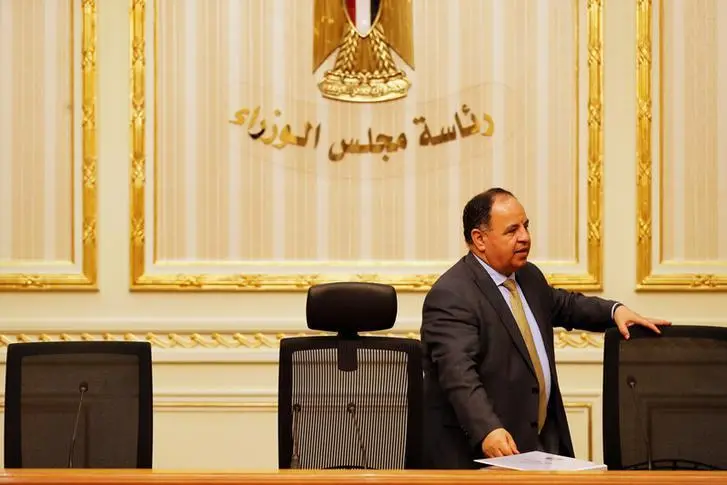PHOTO
Minister of Finance, Mohamed Maait, said that in implementation of the presidential directives, the allocations for support and social protection have been increased to EGP 356bn in the draft budget of fiscal year (FY) 2022/23.
During his presentation of the new budget in the House of Representatives, the minister said that EGP 400bn was allocated to the wages item in the new budget, an increase of nearly EGP 43bn to improve the income of 4.5 million state workers, as instructed by President Abdel Fattah Al-Sisi. The increase includes a rise in periodic and special bonuses of EGP 26bn.
In addition, there is an increase in the tax exemption limit from EGP 9,000 to EGP 15,000, and the total from EGP 24,000 to EGP 30,000, an increase of 25%, at an annual cost of EGP 7bn. Additionally, EGP1bn was allocated for promotions of state employees, in addition to an increase in the incentives for faculty staff members and their assistants in universities, institutes, and research bodies.
The minister added that EGP 191bn was allocated to pension funds, with an annual increase of EGP 38bn, and an additional cost of EGP 8bn for the period from April to June 2022. This will benefit 10 million pensioners and their relatives.
In addition, EGP 90bn was allocated to subsiding food commodities and bread, benefiting about 71 million citizens. Also, EGP 22bn was allocated to increasing the number of beneficiaries of “Takaful wa Karama” and “Social Security” programmes to 4 million families.
Maait explained that the constitutional entitlements of the health, education and scientific research sectors have been met, despite all the global challenges and the pressures they impose on the state’s general budget. He added that EGP 310bn was allocated for the health sector, EGP 476.3bn for university and pre-university education, and EGP 79.3bn for scientific research. There are also projects that shall soon be completed, including lining canals and enhancing the irrigation system.
“During FY 2022/23, the total revenues targeted in the new draft budget amount to EGP 1.518trn, while the total expected expenditures are estimated at EGP 2.71trn,” the Minister said.
The minister added that a primary surplus of EGP 132bn is targeted, at a rate of 1.5%.
“We also aim to reduce the total deficit to 6.1% of GDP, compared to a total deficit of 12.5% at the end of June 2016, and put the debt rate on a sustainable downward path to reach less than 75% of GDP over the next four years. We also aim to reduce the debt rate to 84% of GDP compared to 103% at the end of June 2016, and the debt service ratio to 7.6% of GDP, and 33.3% of budget expenditures. This will happen along with efforts to diversify sources of funding to reduce the cost of development and extend debt life,” he said.
Moreover, EGP 376bn was allocated for public investments with an annual growth rate of 9.6% to improve the services provided to citizens and create more job opportunities, especially for the youth, while increasing environmentally friendly projects to 50%.
“During the coming fiscal year, we will be implementing serious structural reforms to stimulate investment and increase the private sector’s contributions to economic activity to diversify production patterns and localize the industry, with the aim of raising the growth rate, providing jobs opportunities and maximizing exports,” he added.
The Minister said that EGP 5bn was allocated to bearing the financial burdens of lowering electricity prices for the industrial sector, and about EGP 1.5bn for the cost of real estate taxes for the industrial sector. Additionally, EGP 6bn are allocated to continue funding the program to support exporters, so that they have enough liquidity to keep production going.
“We also aim to maximize integrating informal economy into the formal economy to increase tax revenues by 23.5%,” he added. He also highlighted the changes and developments taking place within the customs system. This development started with improving the legislative structure by using the new law and its executive regulations, along with developing logistical centers which connect all outlets through Nafetha to simplify procedures. The ACI system is also being applied to stop relying on paper documents.
© 2022 Daily News Egypt. Provided by SyndiGate Media Inc. (Syndigate.info).





















